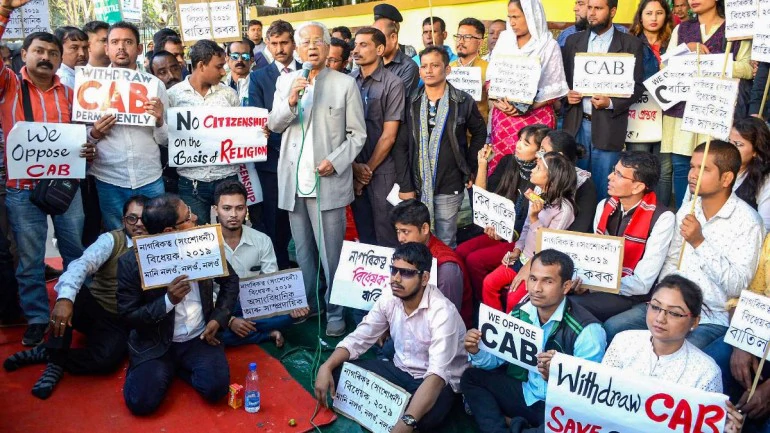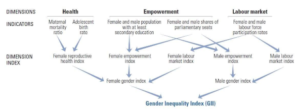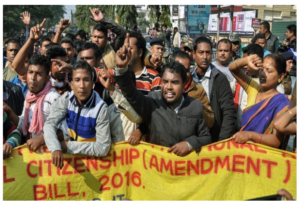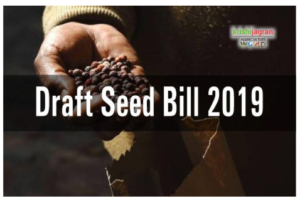IASbaba's Daily Current Affairs Analysis

IAS UPSC Prelims and Mains Exam – 10th December 2019
Archives
(PRELIMS + MAINS FOCUS)
UN development index
Part of: GS Prelims and GS Mains II–Development
In News
- India ranks 129 out of 189 countries on the 2019 Human Development Index (HDI) — up one slot from the 130th position last year
- Human Development Report (HDR) is released by the United Nations Development Programme (UNDP)
- The HDI measures average achievement in three basic dimensions of human development — life expectancy, education and per capita income.
- Norway, Switzerland and Ireland occupied the top three positions in that order. Germany is placed fourth along with Hong Kong, and Australia secured the fifth rank on the global ranking
- Among India’s neighbours, Sri Lanka (71) and China (85) are higher up the rank scale while Bhutan (134), Bangladesh (135), Myanmar (145), Nepal (147), Pakistan (152) and Afghanistan (170) were ranked lower on the list.
- However, for inequality-adjusted HDI (IHDI), India’s position drops by one position to 130. The IHDI indicates percentage loss in HDI due to inequalities.
Gender Inequality Index
Part of: GS Prelims and GS Mains II – Development
In News
- The GII is an inequality indexreleased by UNDP. It measures gender inequalities in three important aspects of human development—
- reproductive Health, measured by maternal mortality ratio and adolescent birth rates;
- Empowerment, measured by proportion of parliamentary seats occupied by females and proportion of adult females and males aged 25 years and older with at least some secondary education; and
- Economic status, expressed as labour market participation and measured by labour force participation rate of female and male populations aged 15 years and older.
- The GII is built on the same framework as the IHDI—to better expose differences in the distribution of achievements between women and men.
- It measures the human development costs of gender inequality. Thus the higher the GII value the more disparities between females and males and the more loss to human development.
- In the Gender Inequality Index (GII), India is at 122 out of 162 countries. Neighbours China (39), Sri Lanka (86), Bhutan (99), Myanmar (106) were placed above India.
- The report forecasts that it may take 202 years to close the gender gap in economic opportunity

Daily Current Affairs IAS | UPSC Prelims and Mains Exam – 10th December 2019
Human Rights Day
Part of: GS Prelims and GS Mains I – Social Issues
In News
- Human Rights Day is celebrated on the 10th December every year to commemorate the Universal Declaration of Human Rights (UDHR), which was adopted and proclaimed by the General Assembly of the United Nations in 1948.
- The Declaration recognizes that the inherent dignity and the equal and inalienable rights of mankind are the foundation of justice, freedom and peace in the world.
- The United Nations’ theme for this year’s Human Rights Day is: “Youth Standing up for Human Rights.”
- The youth will be celebrated as agents of change and encouraged to amplify their voices against racism, hate speech, bullying, discrimination, and fight for climate justice, among other issues.
- Since its inception on the 12th October, 1993, the National Human Rights Commission (NHRC) has endeavoured to promote a culture of human rights.
- The NHRC, like most of the human rights institutions in the world, is a recommendatory body as per the Protection of Human Rights Act passed by Parliament.
- An important initiative of the Commission this year has been that NHRC is proposing to set up a task force to prepare a National Action Plan on Human Rights (NAPHR) comprising the representatives of various Ministries, NGOs, Civil Society and the NHRC among the other stakeholders.
- This plan will help flag the key issues of human rights for the government(s), which would require to be addressed with a targeted approach to improve the human rights situation in the country through a sustained mechanism.
IS 10500:2012
Part of: GS Prelims and GS Mains II- Governance
In News
- Government stated that the Bureau of Indian Standards is preparing the ground for enforcement of piped water quality standards – IS 10500:2012, in cooperation with state departments.
- However, it is not yet clear whether the Centre’s own flagship mission (Jal Jeevan Mission) to provide piped water to all households by 2024 will implement the BIS standard.
- Unlike the BIS standard for bottled water, which is mostly produced by private companies, the standard for piped water — largely supplied by government agencies — is not yet mandatory.
- Jal Shakti is the nodal Ministry for the Jal Jeevan Mission to provide functional household tap connections to 14.6 crore rural households by 2024.
About Bureau of Indian Standards (BIS)
- It is a statutory body established in 1987 under the BIS Act 1986. It replaced the Indian Standards Institution (ISI), a body set up under the Societies Registration Act, 1860.
- It works under the guidance of Ministry of Consumer Affairs, Food and Public Distribution.
- The objective of BIS is to achieve harmonious development of the activities of standardization, certification marking and quality certification of goods.
- BIS is involved in various activities such as Standards Formulation, Product Certification Scheme, Hall Marking Scheme, Laboratory Services etc.
126th Constitution Amendment Bill
Part of: GS Prelims and GS-II – Polity
In News
- The reservation given to SCs, STs and the Anglo-Indian community for the past 70 years is to end on January 25, 2020
- The 126th Constitution Amendment Bill seeks to extend by 10 yearsreservation to the Scheduled Castes and Scheduled Tribes in the Lok Sabha and the Assemblies
- The reservation has been included in Article 334 and therefore the bill seeks to amend the article.
- Article 334 lays down that the provisions for reservation of seats and special representation of Anglo-Indians, SC and ST will cease after 40 years. The clause was included in 1949. After 40 years, it is being amended with an extension of 10 years.
- A similar reservation for the Anglo-Indian community in Lok Sabha and state assemblies is not being extended, as per the provisions of the bill.
- According to Law Minster, there are only 296 members of the Anglo-Indian community in India.
Finland gets world’s youngest PM
Part of: GS Prelims and GS-II – International Affairs; GS-I- Society (Women empowerment)
In News
- The 34-year-old Finnish politician Sanna Marin, her country’s Transport Minister, will soon become the world’s youngest Prime Minister.
- The Transport Minister was chosen by Finland’s Social Democratic Party to succeed Prime Minister Antti Rinne who on December 3 announced he was resigning in the face of criticism over the government’s handling of a postal strike that lasted two weeks in November
- Prime Minister-elect Marin will be Finland’s third woman head of government.
- Marin will lead a five-party Centre-Left political coalition which are all led by women. Four of these women are in their early thirties.
- New Zealand PM JacindaArdern is 39, while Ukrainian premier Oleksiy Honcharuk is 35.

Daily Current Affairs IAS | UPSC Prelims and Mains Exam – 10th December 2019
(MAINS FOCUS)
POLITY
TOPIC: General Studies 2:
- Indian Constitution- historical underpinnings, evolution, features, amendments, significant provisions and basic structure
Citizenship (Amendment) Bill 2019 passed the lower House test

Daily Current Affairs IAS | UPSC Prelims and Mains Exam – 10th December 2019
Context:
The Citizenship (Amendment) Bill 2019, that seeks to give Indian nationality to non-Muslim refugees from Pakistan, Bangladesh and Afghanistan passed the lower House test.
Background:
- Amend the definition of illegal immigrant for Hindu, Sikh, Parsi, Buddhist and Christian immigrants from Pakistan, Afghanistan and Bangladesh, who have lived in India without documentation.
- They will be granted fast-track Indian citizenship in six years. (12 years of residence has been the standard eligibility requirement for naturalisation)
Eligiblity:
- Applies to the people who were forced to seek shelter in India due to persecution on the ground of religion”.
- The cut-off date was December 31, 2014, which means the applicant should have entered India on or before that date.
- Indian citizenship, under present law, is given either to those born in India or if they have resided in the country for a minimum of 11 years.
- The Bill also proposes for the cancellation of Overseas Citizen of India (OCI) registration where the OCI card-holder has violated any provision of the Citizenship Act or any other law in force.
Govt stand and criticism:
- Centre says these minority groups have come escaping persecution in Muslim-majority nations. However, the logic is not consistent – the bill does not protect all religious minorities, nor does it apply to all neighbours.
- The Ahmedia Muslim sect and even Shias face discrimination in Pakistan. Rohingya Muslims and Hindus face persecution in neighbouring Burma, and Hindu and Christian Tamils in neighbouring Sri Lanka.
- The government responds that Muslims can seek refuge in Islamic nations, but has not answered the other questions.
Exceptions in the bills:
- CAB won’t apply to areas under the sixth schedule of the Constitution – which deals with autonomous tribal-dominated regions in Assam, Meghalaya, Tripura and Mizoram.
- The bill will also not apply to states that have the inner-line permit regime (Arunachal Pradesh, Nagaland and Mizoram).
How is it different from NRC(National register for citizens)?
- The National Register of Citizens or NRC that we saw in Assam targeted illegal immigrants.
- A person had to prove that either they, or their ancestors were in Assam on or before March 24, 1971.
- NRC, which may be extended to the rest of the country, is not based on religion unlike CAB.
Why so much opposition?
- The CAB discriminates Muslim identity by declaring India a welcome refuge to all other religious communities.
- It seeks to legally establish Muslims as second-class citizens of India by providing preferential treatment to other groups.
- This violates the Constitution’s Article 14, the fundamental right to equality to all persons.
- This basic structure of the Constitution cannot be reshaped by any Parliament.
Conclusion:
- India was not created on the basis of religion, Pakistan was. Only the Muslim League and the Hindu Right advocated the two nation theory of Hindu and Muslim nations, which led to Partition.
- All the founders of India were committed to a secular state, where all citizens irrespective of religion enjoyed full membership.
Connecting the dots:
- Citizenship law amendment goes against non-discriminatory norms in the Constitution. Critically Analyse
AGRICULTURE
TOPIC: General Studies 3:
- Transport and marketing of agricultural produce and issues and related constraints
New Seed Bill 2019

Daily Current Affairs IAS | UPSC Prelims and Mains Exam – 10th December 2019
Context
- The National Seed Association of India (NSAI), suggested some changes in the proposed Seed Bill 2019, including a more scientific definition of transgenic variety, enhanced farmer rights on seeds and enlisting the services of private firms for evaluating new varieties before seed registration.
Current The Seeds Act, 1966:
- Only covers “notified kinds or varieties of seeds”,regulation of quality, too, is limited to the seeds of varieties that have been officially notified.
- The provisions of The Seeds Act, 1966, apply only to certified seeds produced of notified varieties.
New Seeds Bill, 2019 :
- The new Seeds Bill, 2019 provides for compulsory registration of “any kind or variety of seeds” that are sought to be sold.
- Even hybrids/varieties of private companies will need to be registered.
- Their seeds would have to meet the minimum prescribed standards relating to germination, physical and genetic purity, etc.
- Breeders would be required to disclose the “expected performance” of their registered varieties “under given conditions”.
- If the seed of such registered kind or variety “fails to provide the expected performance under such given conditions”, the farmer “may claim compensation from the producer, dealer, distributor or vendor under The Consumer Protection Act, 1986”.
Background :
- The 1966 legislation was enacted at the time of the Green Revolution, when the country hardly had any private seed industry.
- The high-yielding wheat and paddy varieties, which made India self-reliant in cereals by the 1980s, were developed by the various ICAR institutes and SAUs.
- These public sector institutions have retained their dominance in breeding of wheat, paddy (including basmati), sugarcane, pulses, soybean, groundnut, mustard, potato, onion and other crops, where farmers largely grow open-pollinated varieties (OPV) whose grain can be saved as seed for re-planting.
- Over the last three decades or more, however, private companies and multinationals have made significant inroads, particularly into crops that are amenable to hybridisation.
- Today, the size of the private hybrid seeds industry is estimated at about Rs 15,000 crore.
Response of private seed industry
- Seed companies have welcomed the provision of compulsory registration of all varieties/hybrids, based on the results of multi-location trials for a prescribed period to establish their performance vis-à-vis the claims of the breeders concerned.
- This should help minimise the risk of farmers being sold seeds of low-quality genetics, especially by fly-by-night operators taking undue advantage of the “truthful labeling” and “self-certification” processes.
- The industry, however, wants the process of registration to be time-bound.
- Given the lack of manpower and infrastructure within the government system, the registration may be granted or refused on the basis of multi-location trials carried out by the breeder/applicant itself.
- But the industry’s main reservation is the provision for regulation of sale price “in emergent situations like scarcity of seeds, abnormal rise in prices, monopolistic pricing or profiteering”.
- The fact that this power of fixing sale price of seed has been given both to the Centre and state governments has added to their nervousness.
- Their contention is that seed accounts for not even a tenth of the total operational costs in most crops, despite the genetic information contained in it being the main determinant of grain yield and quality.
Connecting the dots:
- The new Seeds Bill is tilted against farmers’ interests and loaded in favour of seed companies. Critically Analyse.
(TEST YOUR KNOWLEDGE)
Model questions: (You can now post your answers in comment section)
Note:
- Correct answers of today’s questions will be provided in next day’s DNA section. Kindly refer to it and update your answers.
- Comments Up-voted by IASbaba are also the “correct answers”.
Q.1) Which of the following countries are generally considered as Nordic Countries
- Denmark
- Finland
- Iceland
- Norway
- Sweden
Select the correct answer from the codes given below.
- 1,2 and 3 only
- 2,3 and 4 only
- 1,2,3 and 4 only
- 1,2,3,4 & 5
Q.2) Consider the following statements about Constitutional Amendment Bills
- Prior recommendation of President is needed for introducing the constitution amendment bills
- When Lok Sabha and Rajya Sabha differs with respect to passage of Constitutional Amendment Bill, President calls for Joint Sitting of both Houses of Parliament so as to resolve the differences and pave way for its passage.
Which of the statement(s) given above is/are correct?
- 1 only
- 2 only
- Both 1 and 2
- Neither 1 nor 2
Q.3) Consider the following statements about Bureau of Indian Standards (BIS)
- It is a statutory body established in 1987 under the BIS Act 1986which replaced the Indian Standards Institution (ISI).
- It works under the overallguidance of Ministry of Corporate Affairs
Which of the statement(s) given above is/are correct?
- 1 only
- 2 only
- Both 1 and 2
- Neither 1 nor 2
Q.4) Consider the following statements
- Human Rights Day is celebrated on the 10th December every year to commemorate the Universal Declaration of Human Rights (UDHR), which was adopted by UN during its 1993 Rio Summit.
- India’s National Human Rights Commission (NHRC) is a Constitutional Bodyestablished under Article 334 to investigate the violation of human rights or the failures of the state or other to prevent a human rights violation.
Which of the statement(s) given above is/are incorrect?
- 1only
- 2 only
- Both 1 and 2
- Neither 1 nor 2
Q.5) Human Development Index is released by which organisation/body?
- World Economic Forum
- World Bank
- International Monetary Fund
- United Nations Development Programme
ANSWERS FOR 09 DEC 2019 TEST YOUR KNOWLEDGE (TYK)
| 1 | C |
| 2 | B |
| 3 | A |
| 4 | B |
| 5 | C |
MUST READ
Unequal, unsecular: On Citizenship Amendment Bill
Lethal misgovernance: On Anaj Mandi fire tragedy
A growing blot on the criminal justice system
Climate treaty at a tipping point
China at sea: For Delhi, Shiyan incident is a reminder to invest more in maritime scientific research













